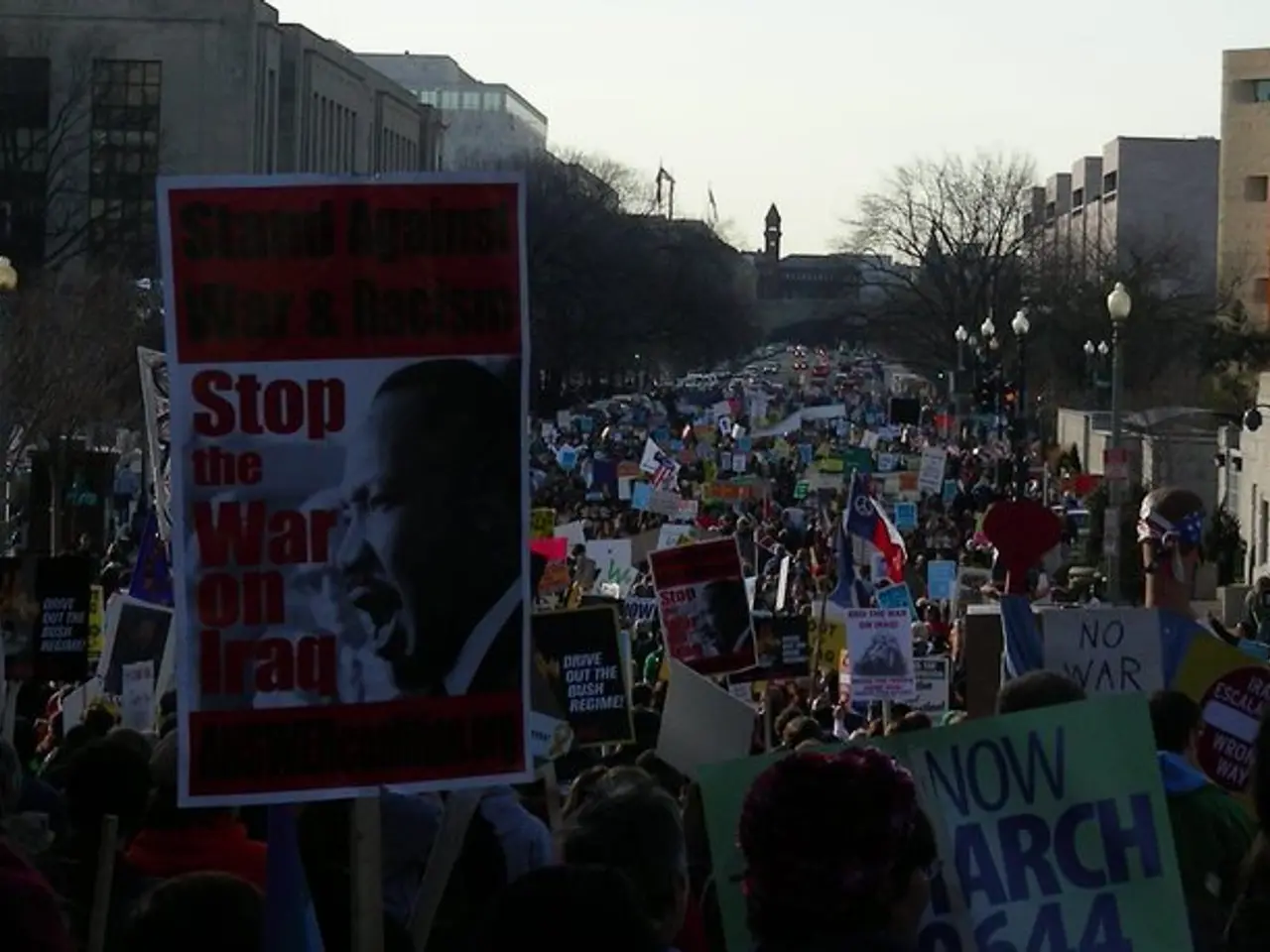Nepal's Recent Government Change: Proceed with Caution; Maintain Distance Remains Advised
In the heart of Nepal, a new wave of protest is sweeping across the nation, led by the country's youth who dream of a "New Nepal" free from the old. This movement appears to be beyond the usual political rhetoric, seeking transformational governance that transcends the existing partisan landscape.
The unrest, often referred to as the "Gen Z" uprising, is driven by pent-up frustrations against the political class. The immediate trigger was the social media ban, adding fuel to the fire of long-standing anger over political corruption. The protests have assumed the momentum of the "Arab Spring" protests, reflecting a desire for change that spans generations.
Amidst the chaos, Nepal's Army Chief, Gen. Ashok Raj Sigdel, has emerged as a key figure. He has taken a position urging peace, dialogue, and a peaceful resolution to the ongoing conflict between the government and the protesting population. On national television, he appealed for protesters to suspend demonstrations, expressed condolences for lives lost, and is engaging in talks with key figures and Gen Z representatives to restore order and seek solutions.
Gen. Sigdel's unique perspective comes from his training in military academies in both India and China. He stresses the collective responsibility to maintain peace and national integrity amid the unrest following violent protests and the resignation of Prime Minister KP Sharma Oli.
The ruling establishment of Nepal is a broad coalition of the extreme-left faction of the Communist Party of Nepal (Unified Marxist Leninist) and the more centrist Nepal Congress. However, the anger against all political parties is palpable, with the irate youth showing little enthusiasm for the return of the monarchy.
The protests in Nepal are currently lacking coordination and organisation, risking regressing into anarchy. Despite this, the psychological, traditional, and emotional connection between Nepal and India remains strong compared to China. This connection, coupled with the desire for independence, may deter the angry young people from aligning with China.
It is crucial that the situation in Nepal does not regress into chaos, similar to what happened in Bangladesh. New Delhi should maintain a clear distance from the running of the new Nepal government to avoid being seen as interfering. The former Chief Justice of Nepal, Sushila Karki, is being considered as a potential Prime Minister for a new interim government, along with three other ministers.
In the midst of this political turmoil, the Gorkha troops, a military force in Nepal, have hoardings that read "Banda Kafir Honu Marnu Raamro", which translates to "it's better to die than to become a coward or infidel". This sentiment underscores the deep-seated values and principles at play in Nepal's current struggle for change.
Read also:
- International powers, including France, Germany, and the UK, advocate for the reinstatement of sanctions against Iran.
- The Amazon's HQ2 Controversy: Was Jeff Bezos's Decision Driven by Envy?
- Transport Minister Schnieder dismisses railway manager Lutz
- Trump boosts tariffs on India due to escalating Russian oil imports








